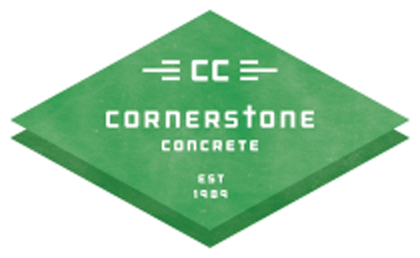- Initial Inspection and Cleaning: Conduct a thorough inspection for any damage from winter, and clean the driveway to ensure there is no damage to the concrete.
- Damage Repair and Replacement: Address minor damages with DIY solutions or seek professional help for significant issues, considering a complete replacement if the driveway is extensively damaged.
- Protection and Enhancement: Apply a high-quality sealant to protect the driveway from environmental factors and explore decorative options to boost curb appeal and property value.
- Ongoing Maintenance: Establish a routine for regular cleaning and inspections to prepare for varying weather conditions throughout the year, ensuring longevity and aesthetic appeal of the driveway.
As the harsh Minnesota winter ends, it’s important to start thinking about how to prepare your concrete driveway for Spring. Regular spring driveway maintenance not only prolongs the life of your driveway, but also enhances your home’s curb appeal and ensures safety. Furthermore, the warm weather (and lack of snow) makes Spring the perfect time to check for any damage caused by the cold and to fix it.
Assessing Your Driveway’s Condition
Before diving into spring driveway maintenance, a thorough inspection of your driveway is necessary. Look for cracks, potholes, or areas where the surface has become uneven (like signs of frost heaving). These can indicate underlying issues that need addressing to prevent more severe damage.
While small cracks and erosion can typically be spotted easily, for a complete evaluation, especially to understand the structural integrity of your concrete driveway, consider hiring a professional. Professional concrete driveway installers can offer a more detailed analysis and spot problems that you might have overlooked.
Cleaning Your Driveway
Start your driveway maintenance with a good cleaning. Remove any debris, leaves, and dirt accumulated over the winter months. For concrete driveways, using a pressure washer can be effective in removing stubborn stains and buildup. Be cautious with the pressure setting to avoid damaging the concrete. Use a cleaner specifically designed for concrete to ensure that no harmful residues are left behind, which could deteriorate the material over time.
Repairing Minor Damage
Small cracks and holes in your driveway can often be fixed with DIY solutions, such as concrete filler or patching products available at most hardware stores. These products are easy to use and can seal small imperfections effectively, preventing water from seeping in and causing further damage. However, if the damage is extensive or if the driveway has multiple large cracks, it’s best to call concrete driveway professionals. They can determine whether a simple repair will suffice or if more extensive work is needed.
It can also be helpful to contact the professional that installed your driveway originally. There may be a chance they offer a warranty for you to take advantage of!
Concrete Driveway Replacement
Sometimes, damage to a driveway can be too extensive for simple repairs, particularly if the driveway is old or has been poorly maintained. In such cases, replacing the entire driveway might be the most cost-effective and long-term solution.
When considering replacement, choosing the right contractor is critical. Look for contractors with solid experience in concrete driveway installation, positive customer reviews, and a portfolio of completed projects. A reputable concrete contractor will remove the old driveway, ensure proper base preparation, and install a new driveway that should last for many years with minimal maintenance.
Sealing and Protecting Your Driveway
Once repairs are completed, or if your driveway is newly installed, applying a high-quality sealant can protect the concrete from moisture penetration, de-icing salts, and oil stains. This sealant acts as a barrier, extending the life of your driveway by preventing the wear and tear that can occur due to weather exposure (you know how the Midwest decides to be hot and humid in the summer, then frigid and harsh in the winter). The best time to apply sealant is when temperatures are moderate, so spring often offers the perfect weather conditions for sealing concrete.
There may be a case in which you do not need sealant. The technology is new to the industry, but there are certain concrete additives that eliminate the need to regularly seal your driveway. At Cornerstone Concrete, we use E5 Internal Cure to eliminate the need for sealing. If your contractor uses this same (or a similar) additive, there is a chance you do not need sealing! We recommend checking in with your original contractor to be sure.
Enhancing Curb Appeal
A driveway takes up a significant portion of your home’s front exterior and plays a major role in the property’s overall aesthetic appeal. Consider decorative options such as stamped concrete or staining to give your driveway a unique look. These treatments not only enhance the appearance but also add to the resale value of your home. Complement your driveway with well-placed landscaping to create an inviting entrance to your property.
Preparing for Upcoming Seasons
Regular maintenance doesn’t end with spring; preparing your driveway for the upcoming seasons is just as important. Establish a routine cleaning schedule, inspect your driveway periodically for any new damage, and address issues promptly to avoid more significant repairs later. Weatherproofing measures, such as sealing cracks and ensuring proper drainage, will help protect your driveway from the elements whether prepping for the humid summer heat or prepping for the freezing temperatures of winter.
Conclusion
Preparing your driveway for spring is a crucial part of home maintenance that should not be overlooked. By starting with a thorough assessment and addressing any damage early, you can extend the life of your driveway and enhance your home’s curb appeal. Whether you choose to work on spring driveway maintenance on your own or hire professionals, the key is to act swiftly and ensure your driveway is ready to withstand another year of wear and tear. Remember, a well-maintained driveway not only looks better but also adds value to your home.





